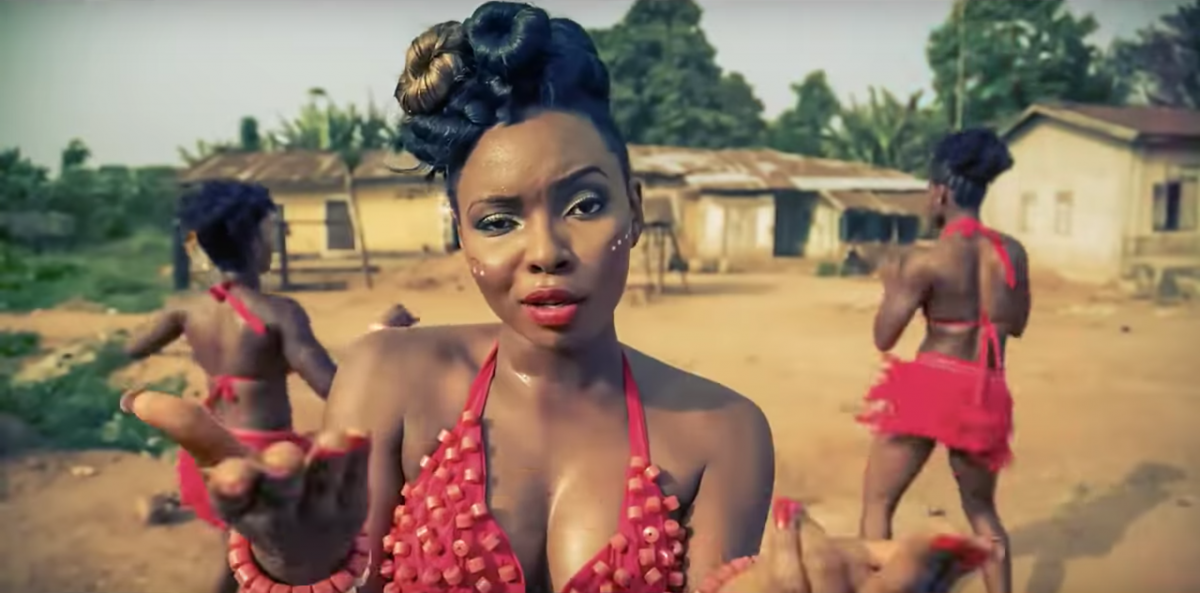
Re-Imagining Gender in Nigeria
Big changes are happening in Africa. The younger generation realizes that Europe need not provide the blueprint anymore. Women, especially, are promoting new African consciousness in the arts throughout Nigeria. Meanwhile, the West rushes to describe this art as «feminist», an imposed label Emma Dabiri contests. An article from the Norient book Seismographic Sounds (see and order here).
There is a buzz in the air. Having overtaken South Africa in 2014, Nigeria is now Africa’s largest economy. The cultural industries are booming, leading some to announce the birth of an African Renaissance. Nigeria is producing an impressive array of talent across diverse creative fields. What’s exciting is the high number of women in these developments. In a recent list of the top ten contemporary visual artists from Nigeria, seven out of ten were women.
Let’s take a look at two examples. There are visual artists such as the director Zina Saro-Wiwa, who, by dubbing alt-Nollywood movies, subverts narrative, stylistic and visual conventions of the Nigerian cinema. In her work she reimagines the cultural landscape and explores women’s issues in contemporary Nigeria. Further, there are authors such as Chimamanda Ngozi Adichie. She spoke about becoming less interested in the way the West sees Africa, and more interested in how Africa sees itself. This reconfiguration means to think more about how a Kenyan sees a Nigerian than how an American might, says Adichie. So, increasingly there is the sense of a contemporary Pan-Africanism – perhaps in contrast to Afropolitanism – that doesn’t seek legitimacy through our Anglo-American superiors, but rather fosters a sense of continental internationality.
Women at the Forefront
Nowhere is this continental internationality better demonstrated than by the popularity of Nigeria’s King of Queens, Yemi Alade (see interview here). King of Queens is the title of Yoruba-Igbo Alade’s debut album. It comes from Alade’s recognition that «in a male dominated society only the strong survive.» The single «Johnny» has become something of an anthem in countries as diverse as Tanzania, Kenya, Ghana, South Africa, Liberia, Uganda and Zimbabwe. While yet to achieve cross-over success on these shores, «Johnny» was nevertheless a massive hit in the UK Afrobeat scene.
Part of the success is undoubtedly the video itself, a comic take on four women confronting a philander, the eponymous Johnny. Alade sparkles, with a playful, yet no nonsense performance. Representing something of a more Diasporic flava are artists such as the polymath Temi DollFace (see here and here). The success of her infectious single «Pata Pata» might be attributed to the pop art retro video and highly stylized vintage aesthetic, not commonly associated with African performers.
Throughout Nigeria women are positioning themselves front and center stage, commanding the attention usually reserved for male performers. But before we make rash pronouncements about how this might be evidence of improving gender equality on the dark continent, or we infer that «women’s rights» are catching up with those we enjoy in the west, we might want to consider Nigerian history, and women’s so-called «traditional roles.» The gendered division of the public and private, in which women’s movements are circumscribed within the domestic sphere, while men, by virtue of their anatomy, are the breadwinners, is not a universal one. Particularly in southern Nigeria, and amongst the Yoruba, women historically had important positions in interregional trade and markets. In addition women had been receiving western-style education since the 19th century, and as such often occupied professional roles, offering them relative autonomy and power. Despite assumptions about Islam, over one hundred years ago, there existed schools named Ansar Uden that operated with the express purpose of providing western education for Muslim children, including girls.
It’s Not All About Gender
Yoruba feminist scholar Oyeronke Oyewumi proposes that the transnational transfer of western concepts of gender, and subsequent gender roles – by western feminists, aid and development agencies – often does little more than reproduce the patriarchal norms to which feminism developed out of opposition. Oyewumi and other commentators have remarked upon the fact that gender did not work as the same sort of organizing principle in society as it does in today’s Anglo-American societies. Certainly the absence of he/she in the language, non-gender specific names, and the fact that obinrin/okunrin translated into English as woman/man are neither binarily opposed nor hierarchical, suggests a different relationship to gender than that which exists in the European imagination. Furthermore, in Yoruba language, all children, regardless of gender, are omode. This is not to suggest pre-colonial Africa was some sort of egalitarian utopia – of course hierarchy existed. However, Oyewumi argues that seniority was a more influential marker of social status than gender. Unlike gender, which is rigid and static, the seniority principle was dynamic and fluid.
Perhaps we should not be surprised by the centrality of women in what might be considered male dominated industries. Rather than catching up with «the West», perhaps Nigerian women are simply rediscovering some of the freedoms to which colonialism and its immediate legacy once barred them access. Certainly Yemi and Temi, through their videos and performances, are demonstrating this in a powerful way.
This text was published first in the second Norient book «Seismographic Sounds».
Biography
Shop

Published on November 28, 2017
Last updated on April 10, 2024
Topics
From Beyoncés colonial stagings in mainstream pop to the ethical problems of Western people «documenting» non-Western cultures.
Desires are produced personally and impersonally: About music as desiring machine and the elasticity of bodies.
Why is a female Black Brazilian MC from a favela frightening the middle class? Is the reggaeton dance «perreo» misogynist or a symbol of female empowerment?




